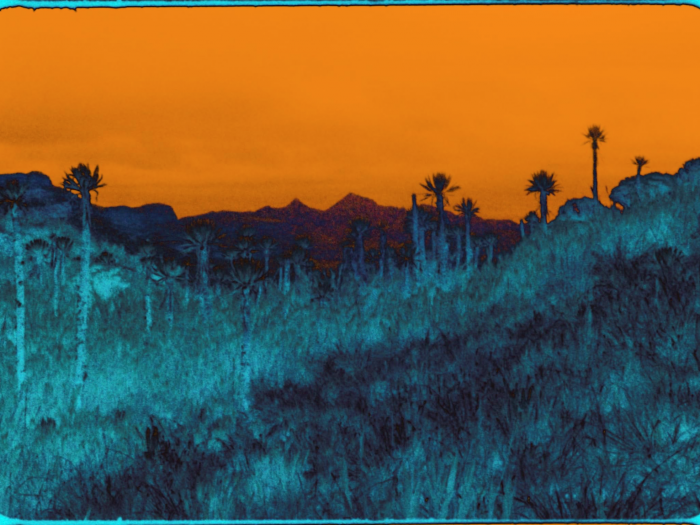
We invite you to join us in reflecting on the central theme of this year’s festival. These are the reflections by the curator of the film selection and programme director Yuliia Kovalenko.
Serhii Plokhy titled one of his books on the history of Ukraine The Gates of Europe, thus emphasizing the, in many respects, significant role our country has played in shaping the European discourse. At the same time, both political and geographical circumstances have often served as a test for us, forcing us to fight for freedom. For eleven years, Ukrainians have been fighting against a far larger occupier — and at the same time, for a free, democratic future. And while it is relatively easy to describe the kind of world we do not want to live in and are fighting against, the image of a free, democratic country, an idea that inspires and sustains us along this exhausting path, has turned out to be more complex.
In various corners of the globe, democracy has recently been going through difficult times. Even the country that has for a long time positioned itself as the global guarantor of democracy, the United States, has found itself in a zone of turbulence. Concepts such as justice, freedom, dignity have ended up on the periphery of even the very vocabulary now used in politics and the media, having given way to the extremely pragmatic and at times cynical notions of “benefit,” “deals,” “trade.” Unsurprisingly, even the investigation of war crimes in this meta-capitalist picture is gradually turning into a kind of commodity during global negotiations. It seems that little has changed since the mid-20th century, a time whose tragedy Hannah Arendt tied, in part, to the collapse of moral categories.
And while some notorious politicians deepen this sad crisis by blaming the democracies of various countries for yielding to far-right and conservative movements, it is worth reflecting on the principles of a participatory democratic system, one that engages its citizens in cooperation. What is it? Where does its strength lie? What are its weaknesses? And ultimately, how can we save this world of freedom and democracy, a dream so cherished by Ukrainians, from deep cracks? Five films from this year’s main thematic program invite us to reflect on these questions from different angles.

A still from the film Sanatorium
And it is precisely the human being who must be at the center of a democratic society, as shown in another film from the program, A Land of Paper by Marion Boé. This French documentary follows lawyer Mélanie Le Verger, who has spent the past twenty years providing legal assistance to unaccompanied minors trying to reach France. Mélanie’s work is a compelling example of how humanity and empathy, when placed at the core of any profession, on the one hand, and civic engagement and care, on the other hand, can open doors to a country of freedom and equality. Even when those doors are propped shut by heavy stacks of paperwork. Perhaps the most essential condition of participatory democracy is the engagement and agency of citizens, their ability to take part in the making and implementation of political decisions, rather than delegating that process to elected officials or faceless institutions. A Land of Paper captures how one person, in their own place, can contribute to seemingly small but fateful change.

A still from the film A Land of Paper
Of course, when speaking about such a practical level of understanding participatory democracy, it is hard to ignore the elephant in the room: the very real historical and geographical circumstances in which a given country developed also shape its ability and capacity to build and practice democracy. The Soldier’s Lagoon by Pablo Álvarez-Mesa is perhaps the most poetic film in this year’s main thematic program. Following the path of Simón Bolívar during his campaign to liberate Colombia from Spanish imperial rule—a journey through the Andes that came at great human cost—the film intertwines the local ecosystem, land resources, and landscapes with oral histories and political processes. This film is a dense tapestry in which the road to freedom becomes layered and multidimensional, and the waters of the spring that once served as a final refuge for soldiers continue, both symbolically and literally, to nourish Colombia. The historical connection between land, violence, and political will replays in this country across generations, still shaping trauma, strength, and the ability to coexist to this day.

A still from the film The Soldier's Lagoon
Another film from South America, Oasis by Tamara Uribe and Felipe Morgado from neighboring Chile, captures, in a no less remarkable way, the tight grip of historical predetermination of a country’s path toward building participatory democracy. This is a one-of-a-kind story, yet it is in many ways recognizable to a Ukrainian viewer: how people’s power could not withstand dry procedurality. In 2019, mass protests erupted in Chile — crowds poured into the streets demanding amendments to the Constitution, since the document in force at the time had been adopted under dictator Pinochet and contained numerous restrictions on freedoms. Following this massive public outcry, the country embarked on the writing of a new Constitution — seemingly a triumph of the people’s will! However, creating the foundational document that defines a state’s structure, order, and principles is inevitably a long and exhausting task, throughout which many questions arise about how to uphold the values of equality and freedom. The director and co-director track this process in a kaleidoscopic fashion, bringing to the surface many vital questions about the nature of democratic governance. In the end, after several years of meticulous work and debate within society, Chileans went to a referendum — and… rejected the draft of the new Constitution, returning instead to the version from Pinochet’s era. Although this turn of events is no secret and made headlines around the world a few years ago, Oasis remains a gripping film, composed of countless questions about coexistence in society, the path to political agency, overcoming historical constraints, and ultimately poses a compelling question for reflection: how can the driving force of street protests and the will of the people be transformed into civic engagement and responsibility when it comes to institutionalizing democracy?

A still from the film Oasis
And the fifth puzzle piece in this program is devoted to perhaps the most politically charged issue. The idea of participatory democracy is based on the belief in active citizens capable of making smart decisions. Accordingly, participatory democracy fundamentally depends on critical thinking skills. An American Pastoral by Auberi Edler had its world premiere on the big screens of IDFA just a week and a half after the 2024 US presidential election — and, not least because of that context, it resonated not just vividly but as a clear and accessible explanation of what is happening in a country long seen as a global guarantor of democracy. This is a somewhat satirical yet deeply sad film that raises a very uncomfortable question about confronting propaganda and critical thinking as the foundation of a democratic system.

A still from the film An American Pastoral
Through this documentary immersion into public debate in the small town of Elizabethtown, Pennsylvania, on the eve of local school board elections, An American Pastoral shows us that the mere existence of democratic procedures is not enough to prevent a society from losing its mind or to protect it from radically charged populism. The film doesn’t capture high-level politics, it focuses instead on very local movements in a community of around 12,000 residents. And the ease with which this level of public life becomes fertile ground for the most absurd hateful and xenophobic narratives is at first even comical, but ultimately shocking. Why is the capacity of critical thinking losing this battle? Is it really about education? Of course, education matters greatly — and the fierce battle that unfolds throughout An American Pastoral is vivid proof of that. But the film also brings to the surface something that goes beyond the convenient conclusion about education: it tells us that education alone doesn’t determine a person’s ability to think critically and make rational decisions. Philosopher Judith Butler recently summed this up brilliantly: the narratives that brought Trump back to the White House resonated with many not because they are stupid or blind and can’t see that they’re being promised the impossible, but precisely because they know it’s populism—and they enjoy the obscene release of lies, farce, and hatred into the realm of the permissible. And how to counter that — this, in my view, is the greatest question and the hardest challenge for participatory democracy. And An American Pastoral invites us to reflect on exactly that.
Featured image: A still from the film Sanatorium